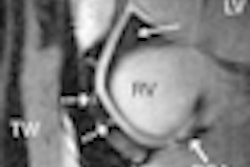
WASHINGTON (Reuters) - Low doses of aspirin taken to reduce the risk of heart attacks and strokes can also lower the risk of colon cancer, British researchers reported today in the Lancet.
Their follow-up of five randomized trials -- lasting at least 17 years and up to 27 years -- found that aspirin reduced the number of cases of colorectal cancer by a quarter and cut colon cancer deaths by a third.
They said their findings may tip the balance in favor of using aspirin to prevent colon cancer.
Dr. Peter Rothwell of John Radcliffe Hospital in Oxford and colleagues analyzed patient-level data from four trials of aspirin versus control in primary prevention (Thrombosis Prevention Trial, British Doctors Aspirin Trial) and secondary prevention (Swedish Aspirin Low Dose Trial, UK-TIA Aspirin Trial) of vascular events and one trial comparing two doses of aspirin (Dutch TIA Aspirin Trial).
"In view of the similar risks of colorectal cancer across the four trials of aspirin versus control and the similar effects of randomized treatment allocation, data from all 14,033 patients in the four trials were pooled," the authors wrote.
The median duration of scheduled treatment was 6.0 years and the median follow-up from assignment to death or end of follow-up was 18.3 years.
Overall, 2.8% of subjects developed colon cancer. Aspirin reduced the 20-year risk of colon cancer by 24% (p = 0.02) and lowered the risk of colon cancer-related mortality by 35% (p = 0.005).
In the overall analysis, treatment reduced the risk of cancer in the proximal colon but not the distal colon, and it had no effect on the risk of rectal cancer.
With longer treatment subjects did have some protection against rectal cancer, however. Allocation to aspirin for five years or more brought the risk of rectal cancer down by about 42% (p = 0.02), and it also lowered the risk of proximal colon cancer by about 70% (p < 0.0001).
For the five trials taken together, there was no increase in benefit at doses of aspirin greater than 75 mg daily on the 20-year risk of any fatal colorectal cancer.
The authors note, however, that in the Dutch TIA trial (in which patients took either 30 or 283 mg aspirin daily), there were 12 deaths due to colorectal cancer in patients taking 30 mg per day versus six deaths in those assigned to 283 mg daily (OR 2.02, p = 0.15).
"This interesting study would incite clinicians to turn to primary prevention of colorectal cancer by aspirin at least in high risk-populations. Specific guidelines for aspirin chemoprevention would be the next logical step," Dr. Robert Benamouzig and Dr. Bernard Uzzan of Avicenne Hospital in Bobigny, France, wrote in a commentary.
Source: http://link.reuters.com/wyq79p
Lancet 2010.
Last Updated: 2010-10-22 12:50:07 -0400 (Reuters Health)
Copyright © 2010 Reuters Limited. All rights reserved. Republication or redistribution of Reuters content, including by framing or similar means, is expressly prohibited without the prior written consent of Reuters. Reuters shall not be liable for any errors or delays in the content, or for any actions taken in reliance thereon. Reuters and the Reuters sphere logo are registered trademarks and trademarks of the Reuters group of companies around the world.

















